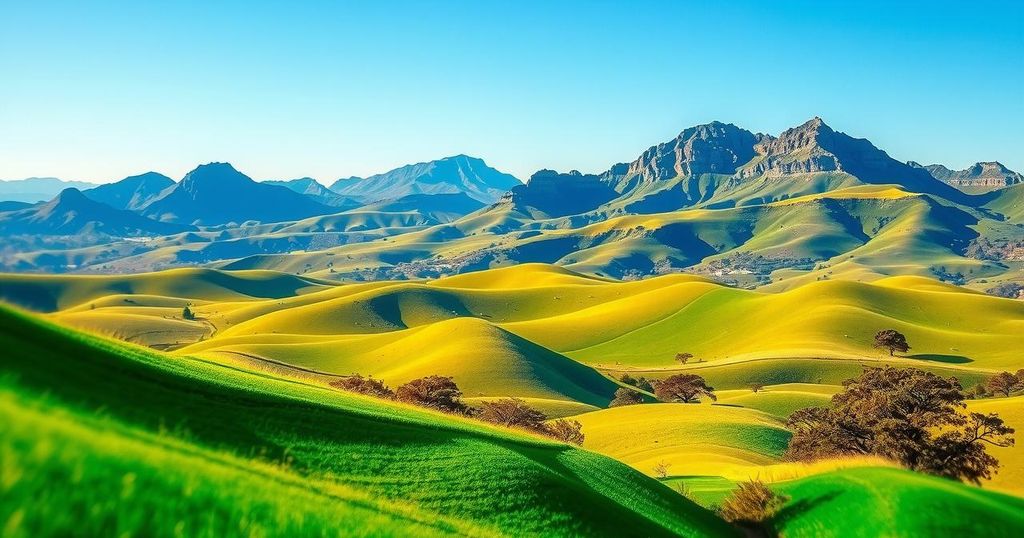Politics
AFRICA, AFRICAN NATIONAL CONGRESS, ANC, BBC NEWS, BRITAIN, CHRISTOPHER LANDEAU, CYRIL RAMAPHOSA, DEMOCRACY, HUMAN RIGHTS, IMMIGRATION, LEADERSHIP, NELSON MANDELA, NORTH AMERICA, RAMAPHOSA, SOUTH AFRICA, STATE DEPARTMENT, TRUMP, U. S, UNITED STATES, WASHINGTON, WHITE HOUSE
Jamal Walker
0 Comments
South African President Cyril Ramaphosa to Visit White House Amid Refugee Controversy
South African President Cyril Ramaphosa is scheduled to visit the White House next week following the arrival of White South African refugees under a new Trump policy. Ramaphosa seeks to reset relations amid tensions over the treatment of Afrikaners, who claim persecution and have recently been granted refugee status. The complex social dynamics illustrate significant race and land-related issues still existing in post-apartheid South Africa.
South African President Cyril Ramaphosa is set to visit the White House next week, as confirmed by his office on Thursday. This visit comes soon after the arrival of the first group of White South Africans, granted refugee status under a policy from the Trump administration. Ramaphosa’s office states that this trip aims to “reset the strategic relationship between the two countries,” highlighting the significance of this diplomatic engagement.
On May 21, Ramaphosa will meet with President Trump, yet the White House remains silent on details regarding the discussion. Tensions have surfaced recently, especially in light of 59 Afrikaners arriving in the United States earlier this week. Deputy Secretary of State Christopher Landau remarked that these individuals have endured “egregious discrimination” back in South Africa, sparking controversy.
The discussions about Afrikaners have drawn mixed responses. State Department spokesperson Tammy Bruce described them as a “vulnerable group facing unjust racial discrimination in South Africa.” However, Ramaphosa has fiercely contested this characterization, declaring it to be “not true.” He has also criticized those seeking refuge, branding them as “cowardly” for fleeing rather than addressing their situation.
So, who exactly are the Afrikaners? They are White South Africans, primarily of Dutch descent, and they have been part of the country’s history for around four centuries. Afrikaners speak Afrikaans, a language derived from Dutch, which alongside English, counts as one of South Africa’s twelve official languages. Historically, Afrikaners were pivotal in establishing apartheid in 1948 — a political system that severely marginalized the Black population until its end in 1994, when Nelson Mandela led the African National Congress to victory and became the nation’s first Black president.
Despite apartheid ending three decades ago, socioeconomic disparities persist. Research shows that only 1% of White South Africans live in poverty compared to a staggering 64% of Black South Africans, indicating a persistent inequality. Some Afrikaners are now claiming refugee status, citing fears of losing their land and experiencing violence.
This refugee claim has been sparked by a new law signed by Ramaphosa in February, permitting the government to expropriate land without compensation, conditionally described as “just and equitable.” Though the law does not specify targeting any racial group, many believe it mainly threatens White landowners since they possess a significant portion of South Africa’s land. The government insists the law’s intention is to address unutilized land rather than to carry out a racially motivated agenda.
Adding to the controversy, U.S. officials, including Deputy Secretary Landau, have alleged that Afrikaners face specific threats, calling them “egregious and targeted.” In contrast, the South African government attributes violence against farmers to general crime rather than a race-based strategy.
A significant aspect of this debate is the actions taken by President Trump, who signed an executive order prioritizing Afrikaner resettlement within the refugee program. Other refugee applications were frozen, but exceptions could be made on a case-by-case basis. Explicitly, Trump’s order emphasizes Afrikaners, despite comprising only half of South Africa’s White population.
According to the U.S. embassy in South Africa, individuals eligible for refugee status must be South African nationals of Afrikaner ethnicity or racial minorities, articulating experiences of persecution or fear of future persecution. This situation is complicated and continues to evolve, reflecting the broader discussion on race and rights in South Africa and around the world.
In summary, President Cyril Ramaphosa’s upcoming visit to the White House coincides with the controversial arrival of Afrikaner refugees in the U.S., addressing complex themes around race, land rights, and discrimination in South Africa. Tensions between Ramaphosa and the Trump administration have been heightened by conflicting narratives on the safety and existence of the Afrikaner community. As the issue unfolds, it brings to light the ongoing struggle for equity in a post-apartheid South Africa. The implications of this situation are likely to resonate beyond immediate diplomatic engagements, affecting broader discussions on refugee policies and racial dynamics moving forward.
Original Source: www.cbsnews.com




Post Comment